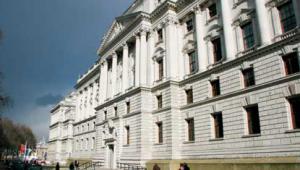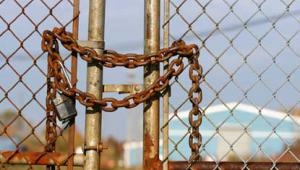On a visit to China, Osborne told the BBC that “the economy is smaller than we thought in Britain”, which could necessitate further reductions.
In the Spending Review last November, the chancellor announced four-year spending plans that will slash Whitehall spending by an average of 19%, less than had been anticipated. This was due to a £27bn improvement in the public finances forecast by the Office for Budget Responsibility over this period.
However, Osborne said on Friday that the global economy had got “markedly worse” since the publication of these plans, while the Office for National Statistics had found UK output was smaller than expected.
“We are going to have to look at public expenditure again. We’re going to look at whether we need to go further in reducing spending. I’m absolutely clear we’ve got to balance the books, we’ve got to make sure we run a budget surplus as a country so we’re prepared for whatever the world throws at us.”
As a result, the Spending Review programme, which is intended to deliver a government surplus in 2019/20, would need to be reviewed.
“As more information comes in, we make sure that the essentials of our plan – which is Britain lives within in means, Britain can only spend what it can afford – are applied to our public expenditure.”
Responding to the comments, shadow chancellor John McDonnell said the need for further reductions would be “a total humiliation” for Osborne.
“He has sneaked off to China to admit what Labour have been saying for months, that his recovery is built on sand,” McDonnell said.
“Far from paying our way, Osborne’s short-term economics means Britain is deeper and deeper in hock to the rest of the world.
“Labour and a growing coalition that now includes the OECD and the IMF are calling for an economy based on increased investment.”
For the Liberal Democrats, Treasury spokeswoman Susan Kramer said Osborne’s decision to abolish total borrowing in order to look tough on the economy was coming back to haunt him.
"Rather than slashing investment and public services to hit an arbitrary spending target, now is the time for him to come clean, admit he was wrong and start the kind of capital spending we need in housing and infrastructure to make our economy fit for the future,” she said.





















